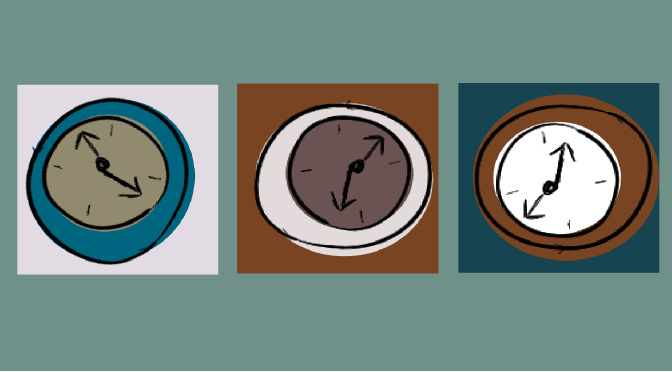It occurred to me recently that all but three of the contacts in my phone require an area code, and that a good deal of them require a country code as well. To get in contact with someone whose living room I was sitting in four months ago, I have to go through an app, because my phone can’t call overseas directly, and then have to go through two levels of calculation; first, the time difference to where I grew up and then the difference to them. Why two? Because I’ve barely been where I am long enough to adjust how I calculate where other friends are even within the states.
I wish there was another phrase besides “culture shock” or “reverse culture shock” to capture the complicated mess that is returning to your old culture. I can’t speak for everyone, but for me it feels a lot like singing karaoke at a bar that never updates its playlists: thinking about going is pretty exciting, the first few seconds of every song bring a wave of nostalgia, but by the end of each song the excitement wanes, and by the end of the hour, I’m ready to pack up and never sing Bohemian Rhapsody again.
Maybe it’s just me, but I’ve started to see stages of my life not through accomplishments, or a common procession of events most of my peers hold in common (high school, college, job, marriage, house, kids, retirement, obsession with Wheel of Fortune…) or anything strictly temporal. It only makes sense to me to see it as places, placing the metaphorical “journey” in the physical movement from place to place. But hopping from South Carolina to Pennsylvania back to S.C. to Hiroshima to Gaston to Dallas hardly captures the anti-growth that I’ve found most descriptive of my last ten years.
Courtesy of Sharenator.com
***
One of the more surprisingly troubling sound-bytes I’ve heard is that the mere act of hearing something repeatedly makes it more true. If you got to a kid early enough and just repeated “2 + 2 = 5” enough, in theory that would eventually become as much of a fact to him as that birds fly. And so begins the often repeated process of arguing FROM a point instead of reasoning TO one. I’ve had the interesting benefit of asking people in both Japan and America what country they think is the greatest. And I’m sure it will absolutely shock you to find that their patriotism was lightning quick, and they only hesitated when I asked “Why?”.Roll tape of compulsively proving a point that was only true because they had heard it so much that it had to be…right?
So began my unlearning, relearning, anti-growth, whatever you want to call it. I had been certain that being born in America gave me the greatest advantages in the world…and that marijuana use was against the bible…and that I was a pretty tolerant person…
What had never occurred to me was that I had these assumptions constantly reinforced by those around me. I was tangentially aware that there were “others”, and primarily defined them by our differences. Then, somewhere along the line, it became both exhausting and ineffectual to continue that system. As I looked deeper into my own mind, I found more in common than disparate. I had emotionally disassociated with the extroverts around me for years because of our differences; it was only when I realized that my instinct to draw into myself and theirs to put themselves out there were both in their own way means of avoiding being hurt.
Somehow, both the person who creates emotional distance from everyone and the person who clings desperately, even to those who treat them terribly, are seeking intimacy, just in the wrong ways.
***
This is where returning to my old culture, my old self, became one of the most difficult things to do. There was no shock, just the constant awareness of how similar this world now seemed to the one I had just left behind. How it was the distinctions that betrayed what we all held in common. So now, the low-hanging fruit of racial jokes didn’t just feel naïve, it felt incredibly narrow-minded. For every American going “ching-chong-ching” to imitate an Asian (can’t be more specific than that…), there is an Asian laughing at how fat, loud and rude Americans are.
And while it’s one thing to have your culture stereotypes challenged, it’s quite another to turn the microscope onto your religious tradition (which of course is too pure and sacred to be tainted by culture…).
So how do you argue from experience in a debate where repetition has already decided what is fact and what isn’t? How do you even breach the possibility of misinterpretation when entertaining one question means starting a chain-reaction that, with enough momentum, could shake the whole system? What do you say when you’re reminded of what used to convince you and realize that it can’t anymore?
And how do you look a friend in the eye, knowing that what built the friendship, what held you together, might now be nothing more than a physical place you can only visit from time to time, a shared conviction that you’re not even sure you want to be a part of you anymore, and shared experiences that only show how silent and still your future will be once the echoes of the past finally fade?
***



Recent Comments